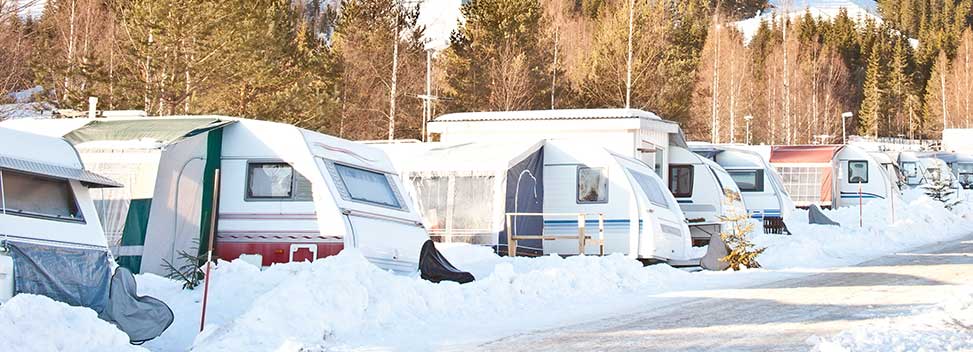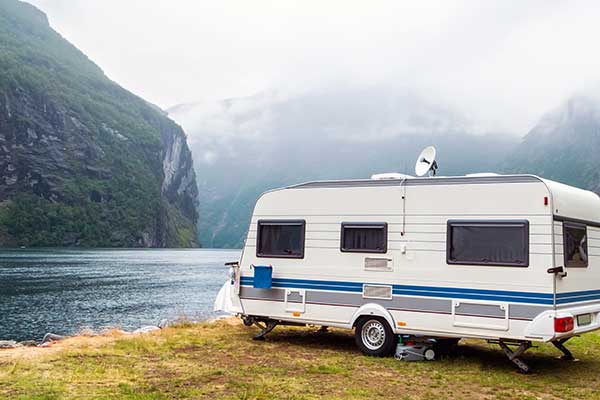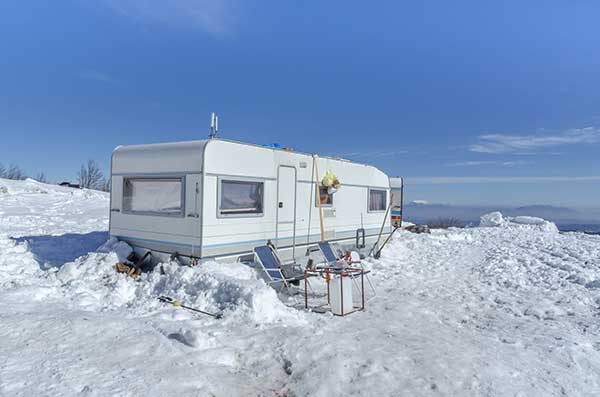A Guide To Preparing your Touring Caravan for Winter
Written by Nick Grant
|
Published on 5th December 2018
|
Last Updated on 27th February 2024
|
Read time: 5 minutes

As winter is approaching, you may be thinking about preparing your touring caravan for the colder months, so that when you’re ready to get back out on the road next year everything is in good working order.
If last winter we thought the Beast from the East was one of the most testing and coldest winters in decades, it seems we could face an even colder winter, with blizzards and freezing mornings, according to the latest updates from the weather forecast. And with these weather alerts one question might pop up in your head: how do I prepare my caravan for winter?
At Intasure we have provided some useful guides for preparing your holiday homes for winter, and we have designed our top tips to help keep your caravan safe and in the best condition possible. Or, if you’re considering buying a touring caravan or motorhome this winter, you can get a good idea of the maintenance and the preparation a caravan needs during the winter.
1. Siting your caravan
Unless you’re road-tripping around a place in the sun for the whole year, or you may want to store your caravan somewhere safe this winter. The most likely place to lodge your touring caravan would be your driveway. Ignoring the problems this decision might cause (not enough room in your driveway for the rest of vehicles), perhaps the most likely problem with this is related with the caravan itself and its safety. Why? The constant exposure to sunlight, rain, and snow can damage the caravan, and it can be a target for thieves, or even be affected by trees and branches falling. You might decide to choose a member of the Caravan Storage Site Owners’ Association for your peace of mind, keeping your caravan protected over winter, without sacrificing your carport or garage space (you might find undercover hardstanding places for this).
2. Caravan security
Remove any valuable items such as televisions, radio units, or other electrical items, and fit visible security products might be a deterrent to potential thieves. A security post or any signs showing the security measures in place might be useful if your touring caravan is stored on your driveway.
3. Furnishings
It’s likely your touring caravan will be exposed to colder temperatures than in your home, so try to remove light pieces of furniture and store them in a warm and dry place if possible. Some of these items may be tailor made, and replacing them if they get damaged might not be as cheap as expected. You shouldn’t forget to fully retract blinds and fly screens (they can be damaged and return to their retracted positions) and give your caravan a deep clean before tucking it up for the cold weather.

4. Exterior bodyworks and cover
You might need to clean the exterior of your touring caravan using specific cleaning products for the walls, paintwork, and windows in general, paying particular attention to the rubber seals and repairing them if necessary. If you want to use a caravan cover, breathable material and ventilation might prevent condensation, damp, and mould inside the caravan. While it’s in storage over the winter months, it would be advisable to visit the caravan regularly and perhaps leave small bowls of salt or silica gel dotted around the caravan, as doing so helps absorb condensation during long periods.

5. Awning, tyres, and steadies
Porch awning and any type of awning in general should be kept in a dry area before removing spots and stains with an appropriate cleaning product. When sitting your caravan on level ground, make sure that corner steadies are rested on blocks or pads, and that wheels are chocked. The handbrake should be left off if it’s to be in storage for a length of time. It’s important to visit the caravan during the winter months and turn the wheels, as it helps to avoid the risk of flat spots on your tyres.
6. Gas and electricity
An important tip for keeping your touring caravan safe during the winter months is to remove gas cylinders (keep them in a cool and ventilated place), and clean and empty the fridge, microwaves, or oven with a solution of bicarbonate of soda or similar. Leaving doors open might help the air circulate and avoid damp smells. All leisure batteries (clocks, smoke detectors, remote controls…) and towing electrics should be inspected, cleaned, removed, and stored in a cool, dry place.
7. Water and heating
All water tanks and filters (toilet, kitchen, washbasin, and shower) should be drained to prevent any water held in them freezing and potentially damaging the water supplies and water systems. This includes the heating system too, so unless you’re a heating specialist, you should be useful to follow the manufacturer’s instructions. You should open all the taps of the caravan to drain them, and flush all remnants of waste water. This procedure would help you to have fresh water next time you use your touring caravan. Covering plugs in all sinks might prevent funny smells.
*The opinions and views expressed in the above articles are those of the author only and are for guidance purposes only. The authors disclaim any liability for reliance upon those opinions and would encourage readers to rely upon more than one source before making a decision based on the information.

Nick Grant is a Business Development Manager at Intasure with 10 years of insurance experience.

